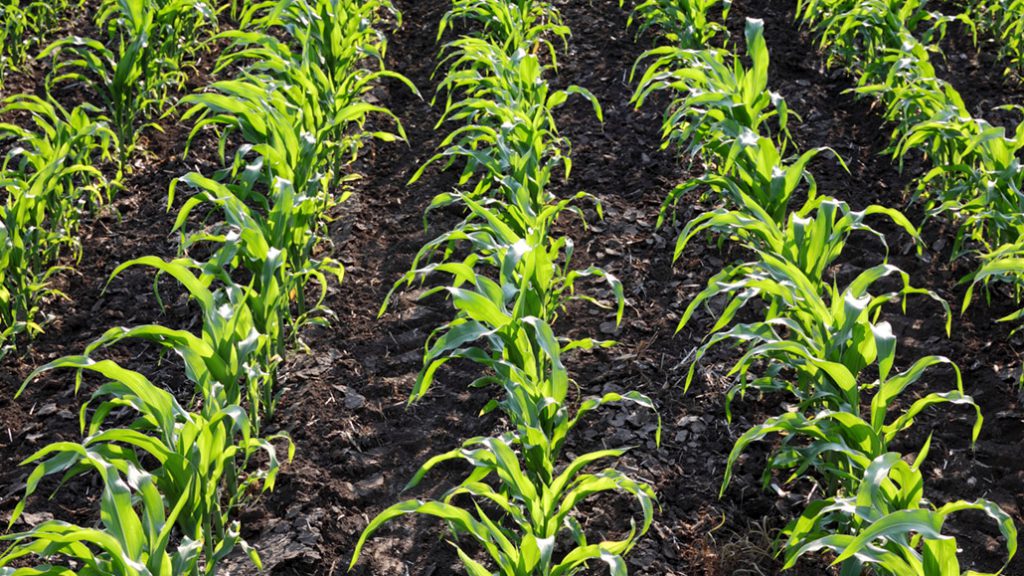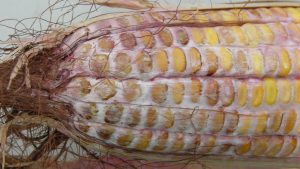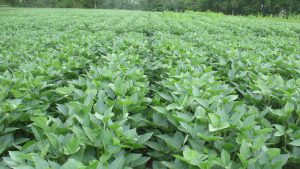Investing in sustainability
SUPPORT MOVES RIDGETOWN CAMPUS PROJECT AHEAD

AS 2019 WOUND down, a tally of industry and municipal support for the proposed $20 million Ontario Sustainable Crop Research and Innovation Centre at the University of Guelph’s Ridgetown Campus showed that nearly 20 per cent of the total had been raised. That’s a significant milestone; in Ontario agriculture, such capital initiatives are usually a 20/80 split between industry and government, a ratio desired by the Agricultural Research Institute of Ontario.
Campus director Ken McEwan took note. Having reached that level of industry support, which started back in 2011 with a $500,000 gift from Maizex Seeds, McEwan says it’s now time to get the project on the provincial government’s agenda. With the province behind it, he figures the project could be complete by 2022.
“The project fits well with what we’re asked to do here — that is, provide leadership, research, teaching and service for all of Ontario agriculture,” says McEwan. “Our role is the business of applied, close-contact work with the industry. We need a reinvestment in the campus to fulfill that role and serve the industry.”
| SUSTAINABILITY HAS PASSED THE TEST OF TIME The term “sustainability” sounds topical, and maybe even trendy; but in agricultural and environmental circles, it’s passed the test of time. As a modern-era goal, sustainability gained momentum in the late 1980s, with the landmark Brundtland Report that evolved from the World Commission on Environment and Development. The report, which set the stage for higher-level thinking among governments and others, defined sustainable development as that which “meets the needs of the present without compromising the ability of future generations to meet their own needs.” Various countries’ and governments’ interpretation of how to address sustainability, such as Canada’s carbon tax, have been debated by the agriculture sector. But while the tools of sustainability may be and should be questioned, there’s no doubt that the overall emphasis on meeting future generations’ needs is roundly accepted. |
INDUSTRY SUPPORT
Adds Jim Campbell, general manager of AGRIS Co-operative, whose firm gave $100,000 to the project: “This new centre will not only be of tremendous benefit to the students and faculty of the Ridgetown Campus, but also to producers in southwest Ontario and across Canada, providing them with valuable agronomic information.” Other major contributors were the Municipality of Chatham Kent, Hensall Co-op, Kent-Essex Mutual Insurance and Pride Seeds.
Campus officials chose to term the capital project a “reinvestment,” to underline that they’re not starting from scratch — either with the buildings themselves, or with the efforts the project will support. Ridgetown Campus, now entering its 98th year as an applied agricultural research and service facility, is unique in many ways, from its geographic location in the heartland of Ontario agriculture, to its longstanding relationship with producers and agribusiness.
That breadth represents major support for Ontario agriculture. Fields crops accounted for $3.4 billion of agriculture and food’s $13.9 billion farm gate sales in the province in 2018. Cropped land in the province covers 8.5 million acres; field crops are planted on nearly two-thirds of that land. About 80 per cent of Ontario’s soybeans, winter wheat and grain corn — along with virtually all seed corn, cucumbers, tomatoes and green peas — are grown in the region, which stretches from Toronto to Windsor.
The advances in such crops have been mainly attributable to research. Ridgetown campus’s research strengths are many, including its association with other world-class personnel on the main University of Guelph campus and the expansive, province-wide Ontario Agri-Food Research Alliance, as well as the campus’s own extensive 500-acre field research system. About 65 per cent of the 200,000-300,000 plots in this system are dedicated to corn, soybeans and wheat.
EXTENSION A PRIORITY
As well, the Ridgetown Campus research culture is built around extension and knowledge mobilization — that is, extending research knowledge from source to a user — seen in practice at the numerous diagnostic field days it hosts during the growing season, as well as through the renowned SouthWest Agricultural Conference, North America’s largest farmer outreach conference which draws up to 2,000 producers and agri-business personnel every January to learn about research and management.
All this requires infrastructure. But as McEwan explains, many of the core research facilities at the Ridgetown campus date back 60 years. “They are at, or past, the end of their useful service life,” he says.
That’s where the new project comes in.
The project itself consists of two parts. First is a new $6-million Field Crop Services Building, to provide receiving, processing and storage facilities for crop samples and seeds, equipment storage and workspaces for field technicians, graduate students and seasonal workers. McEwan says this would consolidate field service support and processing in one new facility, and ultimately allow staff and programs to be relocated out of the old agronomy building.
The second part is the bigger undertaking, the $20-million Sustainable Crop Research and Innovation Centre. The facility will include:
updated microbiology and molecular biology lab facilities; new labs to process soil and plant samples for nutrition, physical characteristics and chemistry; new labs for isolating and culturing bacteria, fungi and other pests; a large area for root washing and plant work; growth chambers; a greenhouse complex with a combination of large and small compartments with controlled environment facilities for research, including independent bio-containment zones, soil preparation room, growth cabinets and cold rooms; teaching labs, shared seminar/ meeting rooms and a common area to support knowledge transfer from research to practice; and clustered office spaces for principal investigators and graduate students.
Dale Cowan, senior agronomist at AGRIS, underlines Ridgetown Campus’s value to the province’s grain sector.
“There’s no disputing the influence Ridgetown Campus researchers and students have had on the grain sector in Ontario,” he says. “If you grow wheat, corn or soybeans, I’d be surprised if some of your production didn’t result from Ridgetown research. The campus needs new facilities to continue supporting competitive agriculture and attract brainpower from around the world, for new ideas and new challenges. A new centre will help bring those people in. As an exporting nation, we can’t stand still with aging buildings and equipment while the rest of the world moves on.” •




















